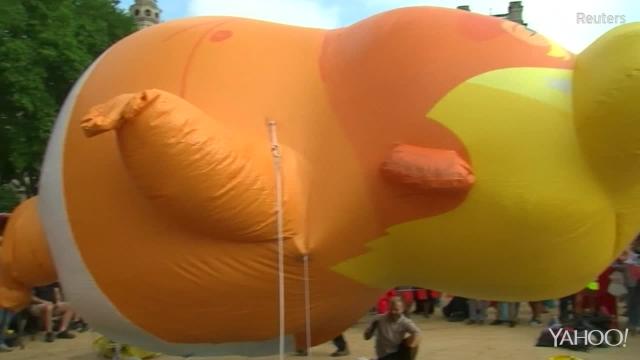Authorities blocked Facebook, Twitter, Whatsapp and other social media citing security concerns ahead of the ceremony in Kampala in which Yoweri Museveni, 71, was sworn in for another five-year term that will extend his rule to 35 years.
The president officially won 60 percent of the votes in the February election, which the opposition said was rigged. Protests have erupted since, leading to clashes with police and dozens of arrests. Officials say the vote was free and fair.
Since coming to power in 1986, Museveni is credited with restoring order after years of chaos. But experts say the growing economy has not kept up with a rising population, while critics complain about corruption and a clampdown on dissent.
“These two mistakes, corruption and delays in decision making, irritate the public and frustrate the investors,” Museveni told visiting African presidents and other dignitaries.
“This time I will act directly so as to discipline the public service as we discipline the army,” the rebel-turned-statesman said, adding that he would work to boost agricultural output in the coffee and tea exporting nation.
Police arrested opposition leader Kizza Besigye after a street protest on Wednesday. Besigye, who heads the Forum for Democratic Change party, won 35 percent of the vote. He has been under house arrest on and off since then.
The head of Uganda’s telecommunications regulator Godfrey Mutabazi said security agencies had asked that access to social media websites be blocked “to limit the possibility of terrorists taking advantage” of visits by dignitaries.
In the days leading up to Museveni’s swearing-in, authorities also placed more security patrols on the streets of Kampala and residents said there was a strong presence of military and police on Thursday.
The government also banned live television or radio coverage of protests in the wake of the election, which EU monitors said was held in an intimidating atmosphere. The EU also said the electoral body lacked independence and transparency.
Opposition to the president is strongest among youths in urban areas, such as Kampala, where frustration has been fueled by unemployment, corruption and crumbling public services.









0 comments:
Post a Comment